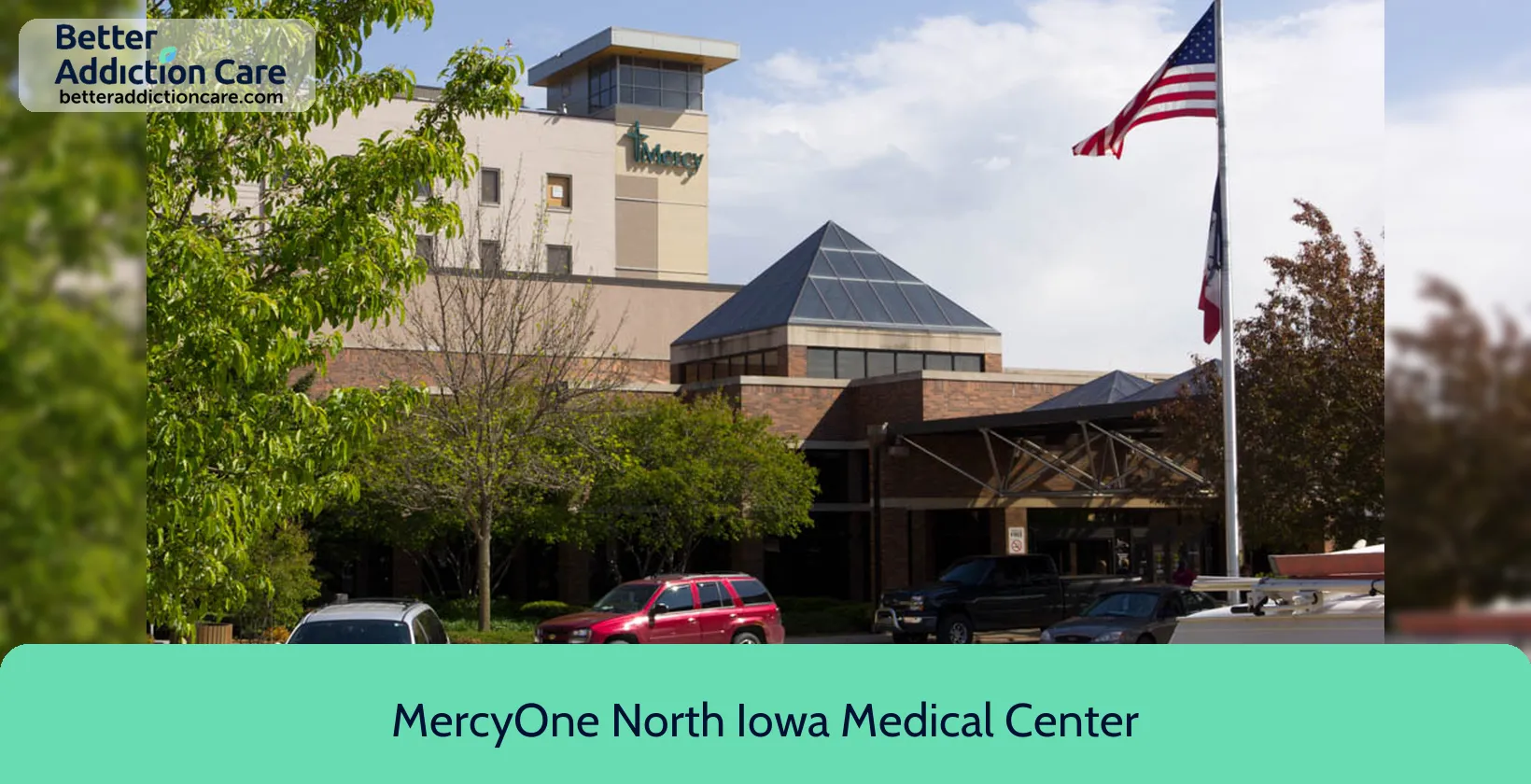43 North Iowa

Overview
43 North Iowa is a mental health treatment center for people seeking treatment near Cerro Gordo County. As part of their treatment modalities for recovery, 43 North Iowa provides group counseling, cognitive behavioral therapy, and activity therapy during treatment. 43 North Iowa is located in Mason City, Iowa, accepting cash or self-payment for treatment.
43 North Iowa at a Glance
Payment Options
- Cash or self-payment
- Medicaid
- Private health insurance
- County or local government funds
Assessments
- Comprehensive mental health assessment
- Comprehensive substance use assessment
Age Groups
- Seniors or older adults
- Young adults
- Adults
- Seniors
Ancillary Services
- Illness management and recovery
- Psychosocial rehabilitation services
- Supported housing
Highlights About 43 North Iowa
6.59/10
With an overall rating of 6.59/10, this facility has following balanced range of services. Alcohol Rehabilitation: 8.00/10, Drug Rehab and Detox: 6.00/10, Insurance and Payments: 6.00/10, Treatment Options: 6.36/10.-
Alcohol Rehabilitation 8.00
-
Treatment Options 6.36
-
Drug Rehab and Detox 6.00
-
Insurance and Payments 6.00
Treatment At 43 North Iowa
Treatment Conditions
- Mental health treatment
- Substance use treatment
- Co-occurring Disorders
Care Levels
- Hospital inpatient treatment
- Outpatient
- Halfway house
Treatment Modalities
- Group counseling
- Cognitive behavioral therapy
- Activity therapy
- Smoking/vaping/tobacco cessation counseling
Ancillary Services
Special Programs
- Persons 18 and older with serious mental illness (SMI)
Get Help Now
Common Questions About 43 North Iowa
Contact Information
Other Facilities in Mason City

6.89

6.68
Browse rehab centers near Mason City and in other cities across Iowa
DISCLAIMER: The facility name, logo and brand are the property and registered trademarks of MercyOne North Iowa Medical Center, and are being used for identification and informational purposes only. Use of these names, logos and brands shall not imply endorsement. BetterAddictionCare.com is not affiliated with or sponsored by MercyOne North Iowa Medical Center.
